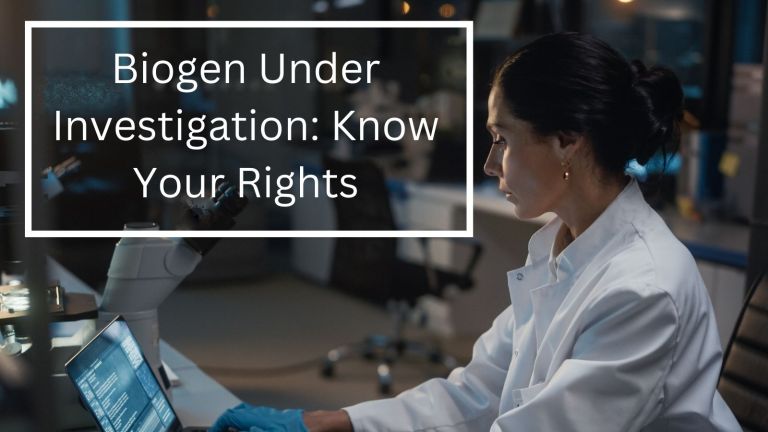Business ethics expert Professor Bruce Klaw speaks to FBR as part of the Corporate Accountability Leadership Series
As part of our Corporate Accountability Leadership Series, we’ve been speaking to some of the leaders in the field of corporate accountability, finding out what they do and why they do it. As a part of the series, I had the pleasure of interviewing Bruce Klaw, Chair and Associate Professor at the Department of Business Ethics and Legal Studies at Daniels College of Business. Professor Klaw is a Harvard Law grad who started his career working in the white-collar criminal defense group at Debevoise & Plimpton in New York. Professor Klaw worked on matters before the International Court of Justice, the United Kingdom Supreme Court, and the Second Circuit Court of Appeals before becoming a professor at Daniels College. He has had his work published in several top law journals.
In this interview, Professor Klaw gives a unique perspective on a host of compliance topics including, why we should consider decriminalizing the giving of foreign bribes under US law to increase transparency and prevention, how Uber’s compliance turnaround has set a good example for companies, and why Legal and Compliance personnel need to become problem-solvers within their organizations. The article is a must read for anyone interested in promoting compliance within their organization.
Q: Professor Klaw, thank you for joining us. Before we dive into some business ethics issues, can you tell our readers a little about what brought you to this career path as an expert on business ethics?
A: Of course, John. It’s great to be with you. Since my undergraduate days studying Philosophy, Politics and Law at Binghamton University, I have been attracted to issues of justice and ethics because they lie at the root of so many societal problems. While in law school, I became fascinated with the question of how society aims to prevent, deter, and punish criminality at the individual, firm, and state levels. I was fortunate to translate my passion into an early professional career by concentrating my legal practice on white collar criminal issues and international disputes in both an advisory and litigation capacity, working on matters related to foreign bribery, market manipulation, money laundering, international legal violations and more. Eventually, however, I realized that the way that I could make the greatest difference would be to help educate our next generation of leaders through scholarship and teaching. This allows me to translate the legal and ethical pitfalls that I’ve studied and encountered in practice into lessons that students can use to make better decisions and avoid problems before they start.
Q: Can you tell us about the Department of Business Ethics and Legal Studies at Daniels? Where does the department fit into the business school and how important is it for business schools to have specialized departments that focus on ethics?
The “BELS” Department is an interdisciplinary academic unit in the University of Denver’s business school that is dedicated to research, teaching, and community engagement in the areas of business ethics, business law and compliance, non-market risk and public policy, and sustainable business.
Faculty in the BELS Department teach courses in the College’s undergraduate Bachelor of Science in Business Administration, its MBA programs, and in the Department’s undergraduate business ethics and legal studies minor. The Department strongly supports the Daniels mission to benefit the public good by developing ethical business leaders through impactful scholarship, challenge-driven education, and lifelong learning.
Thanks in part to our namesake, Bill Daniels, we are one of the few business schools in the country to have a department devoted to ensuring that our graduates have the ethical awareness, legal acumen, public policy savvy, and responsible business mindset necessary to thrive in today’s complex business landscape. By having a dedicated department, we are able to ensure that our focus on the public good permeates our curriculum and goes beyond traditional business education.
Q: A few years ago, you wrote a fascinating article on a new strategy for preventing bribery and extortion by decriminalizing bribe givers and mandating increased disclosures. Two questions: Why did you think there was a need for a new strategy, and, why do you think increased disclosure could reduce bribery?
I published this work because our current approach to preventing bribery and extortion under the Foreign Corrupt Practices Act simply isn’t working as well as it could, in part because it focuses only on the supply side of corruption. Although the effort to ensure bribe payer accountability is laudable, corruption unfortunately remains widespread and hidden while its economic, social and political effects are both obvious and widely felt. Companies that engage in international business are not consistently disclosing corrupt transactions and propositions due to the fear of punishment, which allows corrupt foreign officials continue to practice their dark trade with impunity. Meanwhile, the real victims of foreign public corruption—including honest competitors, extorted companies, and foreign citizenry—are seldom provided recourse or restitution. If we can alter incentives for bribe payers to remain quiet, officials may be less likely to solicit or receive bribes. And if implemented alongside other reforms like a private right of action under the FCPA, mandatory disclosure, and greater intergovernmental cooperation, bribe payers may be less likely to make them out of fear of civil suits by competitors and criminal sanctions by foreign governments. In this way, US decriminalization of foreign bribery could aid in prevention.
Q: Most of our readers work in the field of legal, compliance and audit. Often these people are put in a position where they need to convince business counterparts to invest in compliance or adhere to anti-corruption laws. As a lawyer who has become a successful professor at a business school, do you have any practical advice for lawyers who may find it difficult to communicate the importance of compliance to business counterparts?
This is a challenging problem that I hear about regularly. It’s unfortunately easy for business units dedicated to ethics, legal, compliance, and audit to be viewed simply as cost centers rather than critical components of sustainable value creation. To avoid the perception of being the people in a firm who just say “no” and who don’t generate value, people in these vital roles must become adept at providing timely, viable and ethical solutions to thorny business problems. Transitioning from a problem-identifier to a problem-solver requires both speaking and listening.
People in these roles help ensure trust between the firm and its internal and external stakeholders. Without these functions, shareholders would not invest, creditors would not lend, customers would not do business with the firm, and employees would not devote their time to a shared enterprise. Some tactics for flipping this perception include surveying internal stakeholders, benchmarking against industry peers, highlighting ethical successes, seizing opportunities to learn from mistakes, and taking responsibility for the all-important task of establishing an ethical and healthy firm culture.
Q: In the last few years, the Department of Justice (“DOJ”) and Securities and Exchange Commission (“SEC”) have pushed for companies to build more robust corporate compliance programs. There are plenty examples of companies who have fallen short on this front, but in your career, have you encountered a company or organization that was setting a particularly good example in terms of their corporate accountability or compliance program?
You’ve hit the nail on the head, John. In the realm of corporate compliance, it’s much easier to find bad examples than good ones. Firms with well-functioning internal controls and compliance programs seldom make the front page. Fortunately, organizations like Ethisphere and others exist to highlight and celebrate some of the world’s most ethical companies. By highlighting successes, firms can learn from each other.
From my perspective, I like to look at companies that weren’t always a paragon of corporate ethics and compliance but have made notable strides to turn the ship around and refocus corporate culture. One standout of late is Uber. As you know, Uber wasn’t always practicing model behavior and its firm culture was often the subject of public rebuke, much of it well-deserved. In the last few years under new leadership, however, Uber appears to have substantially cleaned up its act. That’s the result not only of a different tone-at-the-top, but also a function of numerous personnel in Ethics & Compliance who have done the hard work of listening to concerns and engaging with stakeholders. There’s continued room to improve, but it’s important that we recognize incremental positive change.
Q: Are there any NGOs or projects that you have been particularly impressed by or you think deserve more praise for the initiatives they’ve used to promote corporate accountability?
I’m a huge fan of the work of Transparency International (“TI”). Year after year, TI does the painstaking work of tracking both progress and backsliding in the global effort to fight transnational corruption. Without civil society organizations like TI, firms would have a more difficult time assessing geographic corruption risk and states would have a harder time holding each other to account to live up to their anti-corruption commitments through legislation and enforcement.
Q: Our practice focuses exclusively on representing whistleblowers rather than the corporations they work for. In your experience, how important are whistleblowers to advancing the goal of corporate accountability?
Whistleblowers are vital to the functioning of our justice system and efforts to ensure corporate accountability. At great personal cost, whistleblowers are the brave few who speak out when they see something wrong. Their insider perspectives are an invaluable source of evidence. While there’s still substantial work to be done to protect whistleblowers from retaliation, I have been heartened by legislation that aims to ensure that good-faith whistleblowers don’t lose their jobs. And I was happy to see the SEC’s recent announcement that it has awarded its largest ever whistleblower bounty, a staggering $279 million, for providing material assistance to regulators. Awards like these provide incentives for others to come forward.
Q: Thank you so much for joining us and I’m sure our audience will appreciate your insights on these topics. Is there any way readers can keep up to date with the work you’re doing?
Absolutely. I encourage your readership to join our BELS Department mailing list by reaching out to me directly at Bruce.Klaw@du.edu or connecting with me on LinkedIn. This will help them keep up with the initiatives we’re pursuing and join us at one of our public events.

















